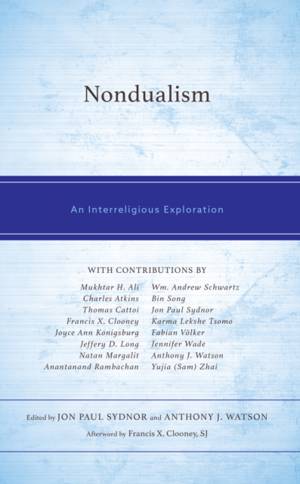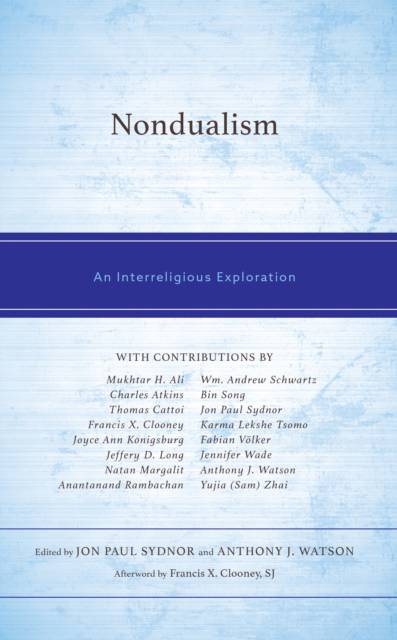
- Afhalen na 1 uur in een winkel met voorraad
- Gratis thuislevering in België vanaf € 30
- Ruim aanbod met 7 miljoen producten
- Afhalen na 1 uur in een winkel met voorraad
- Gratis thuislevering in België vanaf € 30
- Ruim aanbod met 7 miljoen producten
Zoeken
Nondualism
An Interreligious Exploration
€ 195,45
+ 390 punten
Omschrijving
The time has come for nondualism. As a fundamentally unifying concept, nondualism may seem out of place in an age of rising nationalism and bitter deglobalization, but our current debates over tribalism and universalism all grant nondualism an informative relevance. Nondualism rejects both separation and identity, thereby encouraging unity-in-difference. Yet "nondualism" as a word occupies a large semantic field. Nondual theists advocate the unity of humankind and God, while nondual atheists advocate the inseparability of all persons, without reference to a divinity. Ecological nondualism asserts that we are in nature and nature is in us, while monistic nondualists assert that only God exists and all difference is illusion. Edited by Jon Paul Sydnor and Anthony Watson, and guided by scholars from different religions and specializations, Nondualism: An Interreligious Exploration explores the semantic field that nondualism occupies. The collection elicits the expansive potential of the concept, clarifies agreement and disagreement, and considers current applications. In every case, nondualism is universal in its relevance yet always distinctive in its contribution.
Specificaties
Betrokkenen
- Uitgeverij:
Inhoud
- Aantal bladzijden:
- 304
- Taal:
- Engels
- Reeks:
Eigenschappen
- Productcode (EAN):
- 9781666920512
- Verschijningsdatum:
- 12/09/2023
- Uitvoering:
- Hardcover
- Formaat:
- Genaaid
- Afmetingen:
- 152 mm x 229 mm
- Gewicht:
- 616 g

Alleen bij Standaard Boekhandel
+ 390 punten op je klantenkaart van Standaard Boekhandel
Beoordelingen
We publiceren alleen reviews die voldoen aan de voorwaarden voor reviews. Bekijk onze voorwaarden voor reviews.







